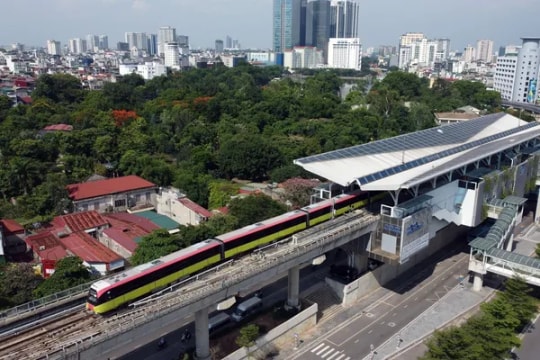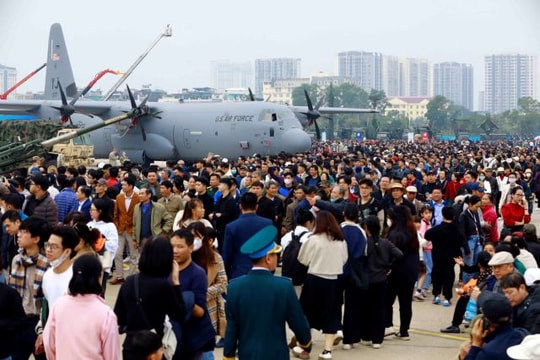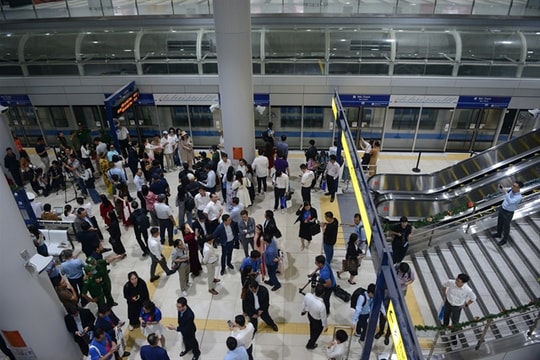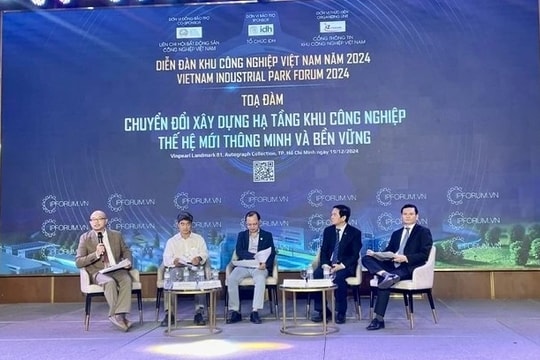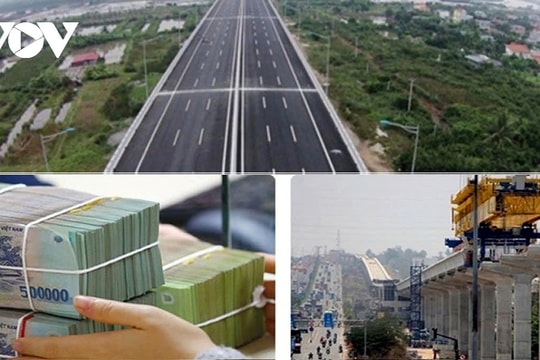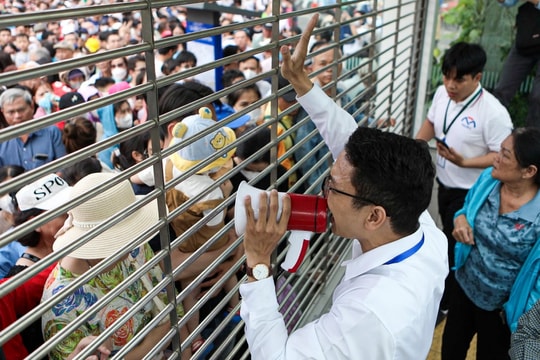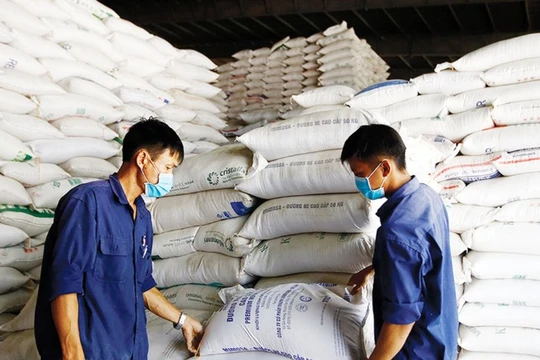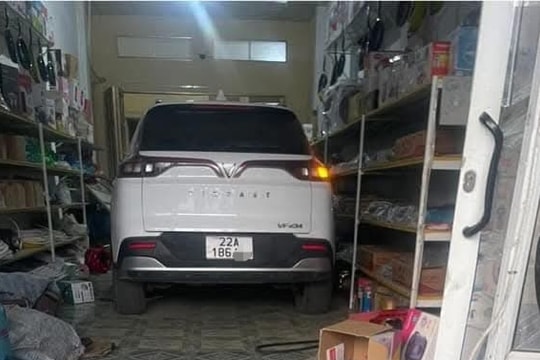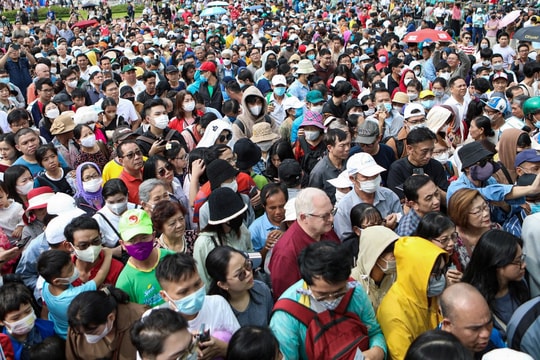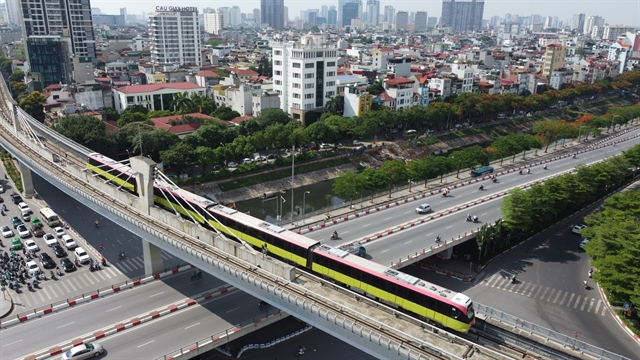 |
| The Nhổn-Hà Nội Station metro line, one of the two urban railways in operation in the capital city. — VNA/VNS Photo Huy Hùng |
HÀ NỘI — Prime Minister Phạm Minh Chính on Thursday presided over a Government meeting on Hà Nội and HCM City metro projects, emphasising long-term vision and comprehensive preparations for swift, effective execution.
PM Chính, who also serves as the head of the National Steering Committee on key national infrastructure projects, noted that delegation of powers should be given to the two cities during implementation, as well as in mobilising resources and mitigating issues that arise during the process.
He said the metro network should be developed both underground and above ground, and align with the national transportation planning.
The Government leader required close coordination between the Ministry of Transport, Hà Nội, HCM City, and relevant departments to perfect the frameworks, standards, criteria and procedures related to this matter while strictly preventing corruption and misconduct during implementation.
The goal is to devise urban railway planning and transportation planning at the broader level, with a long-term strategy that minimises the need for land clearance and the impacts on the local population, security, defence, and other socio-economic aspects.
These projects are part of the direction from the Party and the State to develop a comprehensive infrastructure to address traffic congestion, environmental pollution and growth in Việt Nam’s two largest cities, thereby transforming the country into a modern, industrialised nation.
Urban railway development must align with Việt Nam’s natural conditions, PM Chính noted, adding that it is necessary to diversify funding sources from the public and private resources.
Attention must also be paid to human resources training for smart operations and railway industrial development.
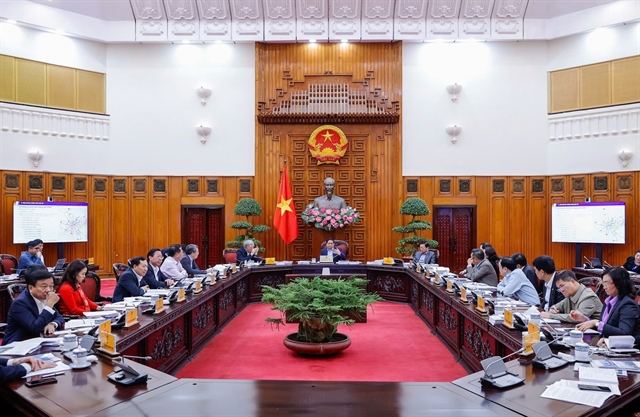 |
| Prime Minister Phạm Minh Chính chairs the Government meeting on Hà Nội and HCM City urban railway projects on Thursday. — VNA/VNS Photo Dương Giang |
To meet the development goals of the country, PM Chính required that the investment projects for Hà Nội and HCM City urban railways must be carried out with innovative thinking and approaches, as well as modern standards and processes that respond to the new context.
Other areas of focus include technology transfer; green and advanced technology; and specific policies for selecting consultants, supervisors, investors and contractors to ensure transparency.
Hà Nội and HCM City must submit their overall planning for approval before December 25 this year, which will include their respective urban railway development plans.
Discussions at the meeting on Thursday focus on the necessity to comprehensively invest and perfect the urban railway networks; notable lessons from the metro line development process in Việt Nam and other countries; the selection of technology and technical standards, development plans for the metro networks; and project impact assessments.
They also exchanged opinions on transit-oriented development; policies and frameworks; and the responsibilities of ministries, departments and local authorities in carrying out urban railway plans in Hà Nội and HCM City.
According to the plans, Hà Nội will have about 397.8km of urban railways in operation by 2035, which will account for 35-40 per cent of public transport. Approximately 200.7km more will be put into operation after 2035.
The capital city will need US$14.6 in funding for the 2026-30 period; $22.57 billion for the 2031-35 period; and $18.25 billion for the 2036-45 period.
Meanwhile, according to the draft amendment to HCM City General Planning until 2040 with a vision to 2060, the city will have 12 urban railway lines, including 10 metro lines and two tramways.
HCM City’s goal is to have 31km of urban railways by 2030 (15-20 per cent of public transport). This figure is expected to be 351km by 2045 (40-50 per cent of public transport), and 510km by 2060 (50-60 per cent of public transport).
The capital for investment and operations is expected to be $36 billion by 2035, $26 billion between 2036-45 and $40 billion between 2046-60. — VNS



